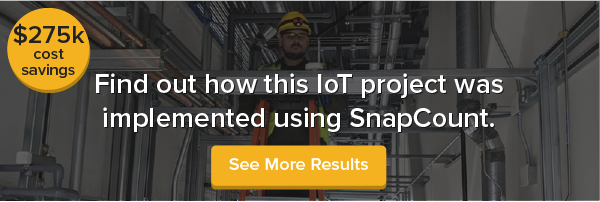
Utility rebates can make a big difference in the ultimate ROI your customers get from any retrofit project. But utility rebate programs can get complicated quickly, and your ability to help your customers capture these savings depends on your ability to navigate the rebate landscape with skill and expertise.
Given that there are nearly 3,000 different programs offered across the country by various state/local governments and utility boards, building expertise with rebates is no small feat!
To build up your skillset around incorporating utility rebate programs into your commercial and industrial lighting and energy retrofit projects, it’s helpful first to understand how these rebate programs have evolved over time.
Encouraging the Transition to Energy-Efficient Lighting
We like to say that the cleanest energy is the energy you don’t use – and this underscores the original goal behind rebate programs. In a world with limited natural resources, energy usage is obviously a concern; when multiplied across every building in the country, the need to optimize energy usage becomes critical.
Energy Savings Rebates
When these programs were first introduced, the intention was to provide financial incentives to encourage the adoption of energy-efficient options. Because these products were often more expensive than traditional products, the rebates helped subsidize the incremental cost.
To take advantage of these rebates involved identifying the existing lighting in a building, identifying energy-efficient alternatives, and calculating the delta between current and proposed energy usage. The rebate was typically generated based on dollars per kilowatt-hours saved.
The rebates were (and often still are) funded from a surcharge applied to utility bills. This presents a huge challenge for the utility rebate program to use these funds wisely. The solution was to include several layers of technical review and/or third-party oversight. In such cases, the retrofitter is typically required to make an engineering case as to the amount of energy being saved, and the data is then validated either by the utility or an external vendor via pre- and post-inspections conducted on site.
This represents a cumbersome, time-consuming process. Above all, the retrofitter must be able to collect excellent audit data and utilize the right technology to make these complex calculations.
Prescriptive Rebates
As the energy and lighting industries have matured, utilities evolved their rebate programs into what are called prescriptive rebates. In this approach, the program administrators analyze past rebate data, current trends in energy and lighting technology, and identify specific a flat-rate rebate for each qualifying product.
For example, if the program administrators see that many warehouse retrofit projects are replacing 450 watt metal-halide fixtures with new 200 watt LED fixtures, the rebate program might pay $150 per every 200 watt LED fixture installed.
The intention is to make the rebate process as straightforward and standardized as possible. These flat-rate programs are easy for customers to understand, require far less information to be collected by retrofitters, and are easier for the utility programs to manage.
Midstream Rebates to Distributors
More recently, utilities have begun flowing these prescriptive rebates down to the distributor level, where contractors working with an authorized distributor can purchase energy-efficient products at a discounted rate, thanks to the rebate the distributor has received.
In these cases, the distributor works directly with the rebate program, which makes life much easier for retrofitters and their customers.
The Challenge for Retrofitters: Access to Data
All of this ultimately ties back to the retrofitter. To succeed in this complex rebate landscape, retrofitters need to understand all the different technology choices they have, so they can design solutions that use the right products to minimize energy consumption and deliver the biggest total savings.
The challenge, of course, is to stay on top of the vast amount of technologies and products available. When a retrofit contractor is walking through a building and explaining options to their customer, they can only discuss either what they know in their own head – or what is available to them in the moment via their software platform.
This is where energy audit software like SnapCount can shine. The goal is to put as much information at the fingertips of your people whenever and wherever they need it, whether they’re in the building conducting the audit or in the office creating the proposal. Encentivizer can seamlessly integrate with SnapCount to pull in rebate estimates ensuring audit professionals have easy access to all of this information.
As you become more experienced and comfortable navigating the complex world of utility rebates or using technology like Encentivizer to do it for you, these skills and expertise can become an important competitive differentiator. It also enables you to provide the savings your customers need to expand the scope of their retrofit projects and provide terrific new upsell opportunities for you.






Share this post: